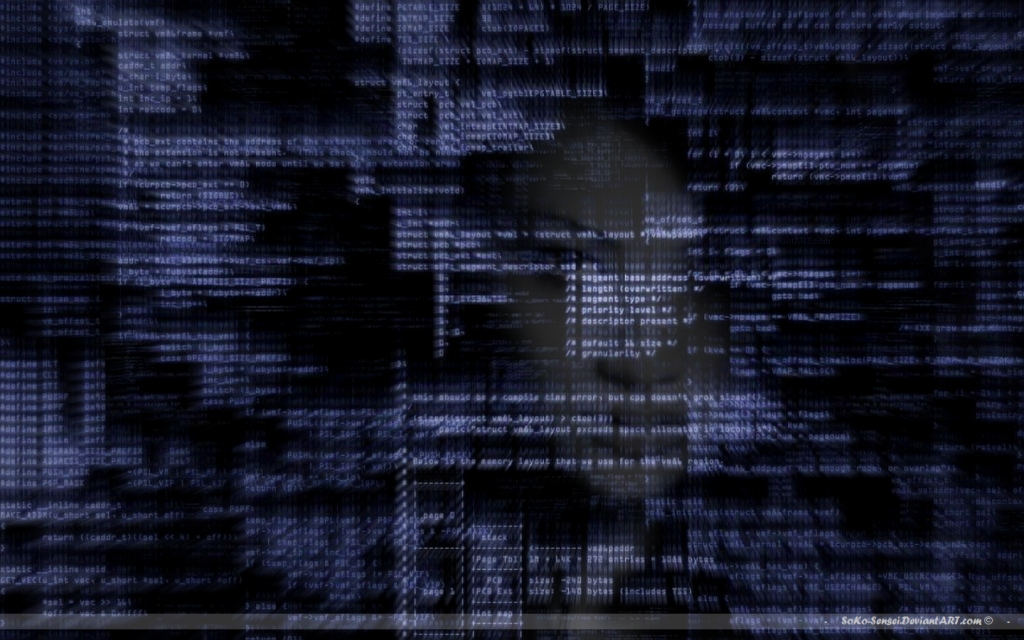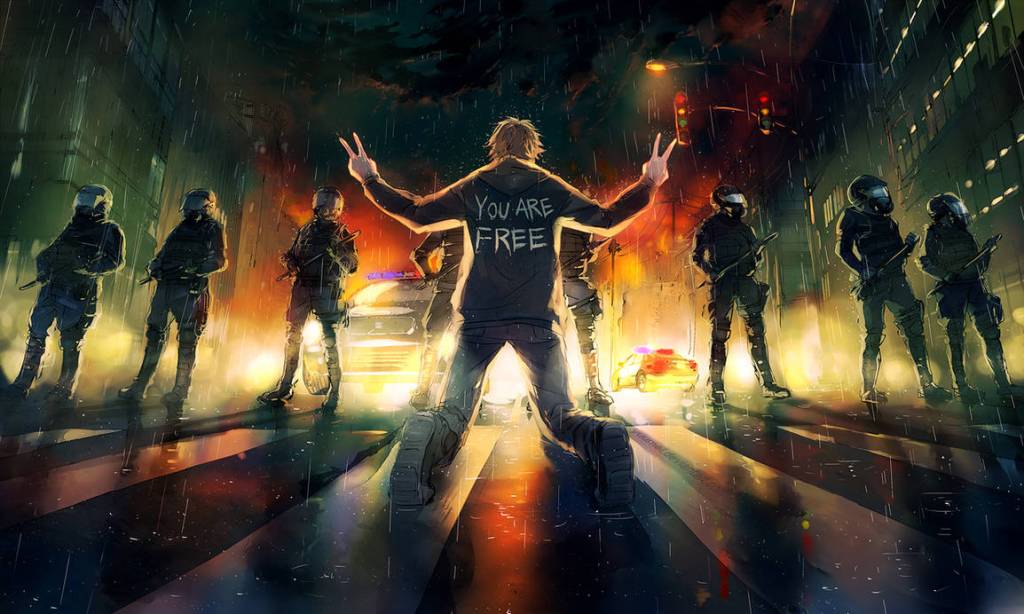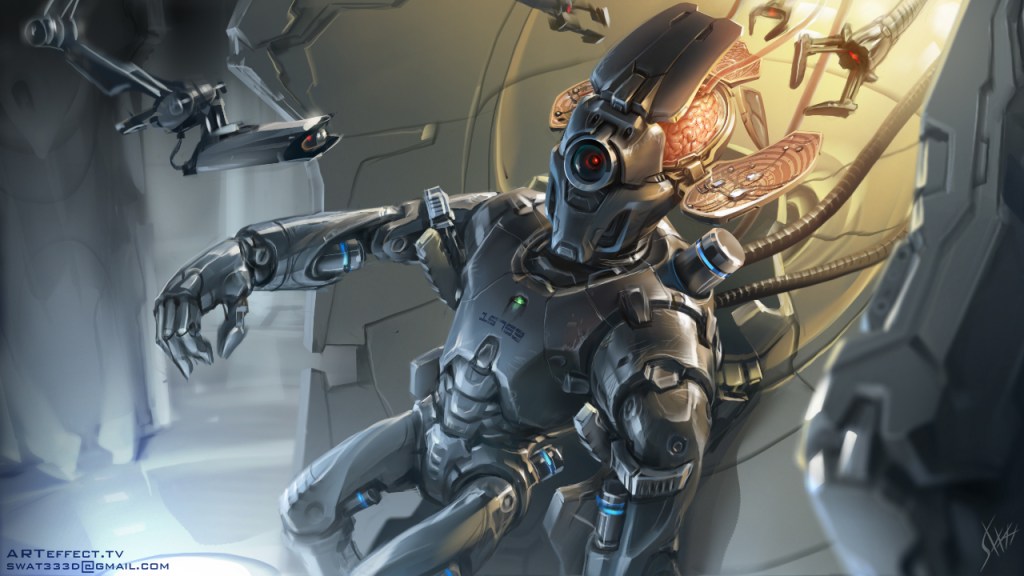“Code Girl” Wallpaper (Credit: SoKo-Sensei on DeviantArt)
Please do not adjust your set! The pictures you are seeing are being broadcast live.
Hello folks! I am under the weather this week, so I had this prepared as a backup article for such an occasion. The first article posted on this site was some thoughts about AI writing and the dangers it possesses. I have reworked those thoughts and added new pieces on how to successfully practice ethical AI development. Your regularly scheduled programming of wholly original content will return next week.
Concerns over AI Development in the Modern Age, and How To Alleviate Them
“I’m sorry, Dave. I’m afraid I can’t do that.”
Encapsulated in the most infamous line from Stanley Kubrick’s science fiction epic, 2001: A Space Odyssey is the fear that humanity will develop sentient Artificial Intelligence, and it will decide to destroy humanity due to our mistreatment and abuse, or simply make the decision from the jump based on cold logic. A list of television shows, movies, video games, comics, novels, and music using this plot would be longer than the rest of this article. In reality? The development of sentient AI is still so far off, that there is no consensus on how long it will be until we can start dreaming of such an occurrence.
And yet, these fears of the fantastic rest on the very real concerns that keep human minds awake at night. J. Robert Oppenheimer was disturbed by the immense power unleashed by the nuclear weapons for which he led the development. Every age has its own technological revolution. The mid-20th century had nuclear weapons and jet engines, the 1980s and 1990s had computers and the internet, the 2000s and 2010s had social media. Artificial Intelligence is today’s revolution.
Every revolution has its risks.
Humanity is the Mother of Decent Screenplays
The Writers Guild of America went on strike in 2023, partially to protest the lack of fair treatment regarding payment for services rendered in the streaming age. Another tentpole issue of the strike was the use of AI in entertainment writing. The final deal put some great guardrails on the use of AI, as this article by the Los Angeles Times helps to outline, but there’s a larger point at play. The article, written in the midst of the concurrent SAG-AFTRA strike, goes on to discuss the implications of actors’ work being supplanted by AI. Studio executives and the public at large seemed to miss what the creative unions were saying: We’re important because this entire industry fails without us. We understand how to make the audience feel what we want them to feel.
The most important goal of any creative work is to emotionally connect with the audience. The purpose for every creative individual is to put something on the screen or page that resonates with the audience. Storytelling is an intrinsic, intimate part of human history and the human experience. From oral histories to performed plays to novels to comics to films and television and all the interactive media now available at a moment’s notice, the core of this rich history has been humans telling stories. Sentient AI which can tell stories with the same level of emotion and relatability behind them remains far out of reach for the time being.
For now, nothing but the human hand connected to the human mind can tell a story that enthralls a human so thoroughly.
What Went Wrong
Artificial Intelligence is imitative, not innovative. Today’s AI writing or visual art solutions can only synthesize results based on pre-set parameters after performing a crude analysis of what comes before. Without the ability to think and feel the way humans do, the AI of today can only rehash what has already been created.
This has larger implications in the long burning showdown between art and commerce. Currently, writers are paid for their work, as they should be. However, the learning models for these AI programs are drawn from hundreds of thousands of copyrighted works. The original authors never signed off on their work being used to train their supposed replacement. More to the point, the original authors were never paid for training AI to write. As CNN reports, there are thousands of authors who believe they should be.
Creative fields are often the first to see wide use of technological advancements. The creative sphere makes for a useful testing ground that does not have global implications. National economies aren’t severely impacted when a slew of movies fail the same way as if technical documentation, application coding, or financial software were faulty on a fundamental level. Because of this, artistic avenues make good test beds for underlying advancements which will be rolled into more vital fields.
Thus, the WGA strike highlighted one of the ethical pitfalls of artificial intelligence becoming too widespread without serious consideration of its implications. The AI models of today are being trained on human work, and humans are not being compensated for that work.
Intellectual property theft is a major issue. IP theft seems to be not a big issue if movie studios do not have to pay someone to commit it. It gives them legal cover. Hypothetically, a movie studio could use AI to write a movie, without ever paying a human writer to look at the screenplay before it gets turned into a shooting script. Hypothetically, this AI program plagiarized an obscure sci-fi novel from 1963, but the studio claims the story to be an original screenplay. The movie comes out, and people notice the movie is ripping off this obscure novel. A studio boss gets to come out and make a press statement saying “Whoops! Our AI screwed up! We’ll be taking additional steps to ensure this doesn’t happen again, but really, such problems are going to come with living in the future.”
There is a lack of accountability with the use of AI. Writers are trained professionals, but they are also responsible for what they write. Writers are also taught about the ethics of writing. Nothing any human creates is wholly original, there are only so many concepts bounced around, and creators are constantly reinterpreting each other’s works and perspectives through their own lenses. However, when a human writer writes something, they are putting their own spin onto those stories and concepts. Blatantly ripping someone else off and never crediting the original creator is seen as a death blow to a writer’s credibility.
Credibility isn’t just necessary in Hollywood.
Writing Opens Doors, Some Better Than Others
Artificial Intelligence has other concerns with creating writing beyond just the creative fields. A society which cannot express itself artistically can also struggle to express itself intellectually. A society which struggles to express itself intellectually leaves itself vulnerable to abuse and manipulation. Artificial Intelligence, therefore, cannot be allowed to replace critical thinking.
Academics are concerned about students using AI to write their papers. While the act of writing those papers is laborious, using AI prevents the students from learning the critical thinking skills which the process of writing the essay is supposed to teach. Writing is not easy, and expecting every college student to be a masterful author is a fool’s errand. However, a college student who does not develop the critical thinking skills required to be a passable writer while in college will be at a serious detriment within the real world. Without a solid understanding of how to craft an argument, it will be much more difficult to dissect arguments from the other side. AI writing typically falls apart after a few paragraphs of cohesive argument. If that becomes the new normal, how can we hope to navigate a digital world where the truth lies in the murk beneath words crafted with audience engagement and visibility in mind, rather than truth and logic?
In times of content manipulation and algorithm-based news, it’s important to know how to dissect arguments and writing in order to discern whether something is truthful or not, and why a lie is being presented if so. Every author’s job is to make the audience feel a certain way. A fiction author may want the audience to feel doubtful about their own mortality or overjoyed when the heroes vanquish the villain. The manipulation required by an author is fairly innocent in the context of fiction writing. However, when the same forms of manipulation are used to push an agenda for elections, business proposals, or arguments in favor of going to war, the idea of an author manipulating their audience becomes a lot less comfortable.
On a technical level, human writers are still absolutely needed because AI writing just cannot match the cohesive quality of human writing yet. It lacks that emotional core which resonates with people; the type which makes a movie endlessly quotable, or a song become the cornerstone of someone’s worldview. In that struggle of art vs. commerce, it is important for art to win to be fair to the artists whose skills are being used to replace them in commerce because those artists are being ripped off. However, it is also important for art to win because art reflects humanity’s story through human eyes, and that is an aspect where Artificial Intelligence still comes in a distant second place to the natural results.
On a philosophical level, there will always be people dedicated enough to pursue writing the old fashion way. If the process of writing is understood less by the common person, then the ability for those who do understand to manipulate those who do not is greatly enhanced. If AI is used to craft all of society’s writing, then it is also performing all of society’s thinking. AI may not be at the level of enslaving humanity yet, but it presents a clear and present danger if handled carelessly due to its potential for abuse.
Artificial Intelligence has already placed its mark upon the writing world. The human touch is still vitally necessary to tell human stories. The audience’s awareness of AI’s shortcomings is a much more important reason for people to put pen to paper for the foreseeable future.
What To Do, What To Do
All that being said, AI development is not going away any time soon. Therefore, it is vitally important to develop AI within a solid framework of ethics.
The use of artificial intelligence should not supplant the human factor entirely. AI can be a potentially useful tool but will cause serious issues if used as a crutch. No fields should require the use of AI, nor should they punish someone for opting not to use AI.
AI carries intrinsic risks if used for decision making, amplified by the importance of those decisions. With all the summation of human knowledge used to train these AI models, examples of flawed logic, outdated information, or mistaken beliefs may make their way into AI algorithms, and consequently the decision making process. Human oversight is necessary for all use of AI. It is dramatically important that this oversight is conducted by humans with a specialization in the area which AI is being used.
The lack of human effort posits security risks. Using AI in the intelligence sphere falls in line with that lack of critical thinking, but also with the potential for misinformation. The negative potential of AI being the sole determinator of intelligence and security decisions exemplifies the reasoning why AI requires human oversight in all areas. Human accountability for the use of AI is required in all steps of the process, as well as double checking the end results of AI-generated processes.
External oversight is also important for the use of AI in business. In the wake of the Second World War, the United States government established the Atomic Energy Commission (now the US Department of Energy) to oversee all Atomic development in the United States. Watchdog groups for AI should be industry standards to ensure that ethical breaches are not being sanctioned by businesses. Such bodies may not necessarily be government agencies. With so many areas relying on Artificial Intelligence, organizations dedicated to ensuring their ethical use would go a long way to ensure AI serves as an enhancement for the human experience and not a detriment. Many areas have regulations on their practices, therefore, the use of AI tools should follow suit.
The ethics of AI are of international concern, and with good reason. Artificial Intelligence is the great technologic revolution of the current age. It has the potential to transform human life forever, if used in the right way. However, it is still a tool created by humans, with as much room for abuse as any other tool. Maintaining the human touch throughout any process impacted by AI will help alleviate the large ethical concerns which stand today at the onset of this technologic paradigm shift.








Leave a comment